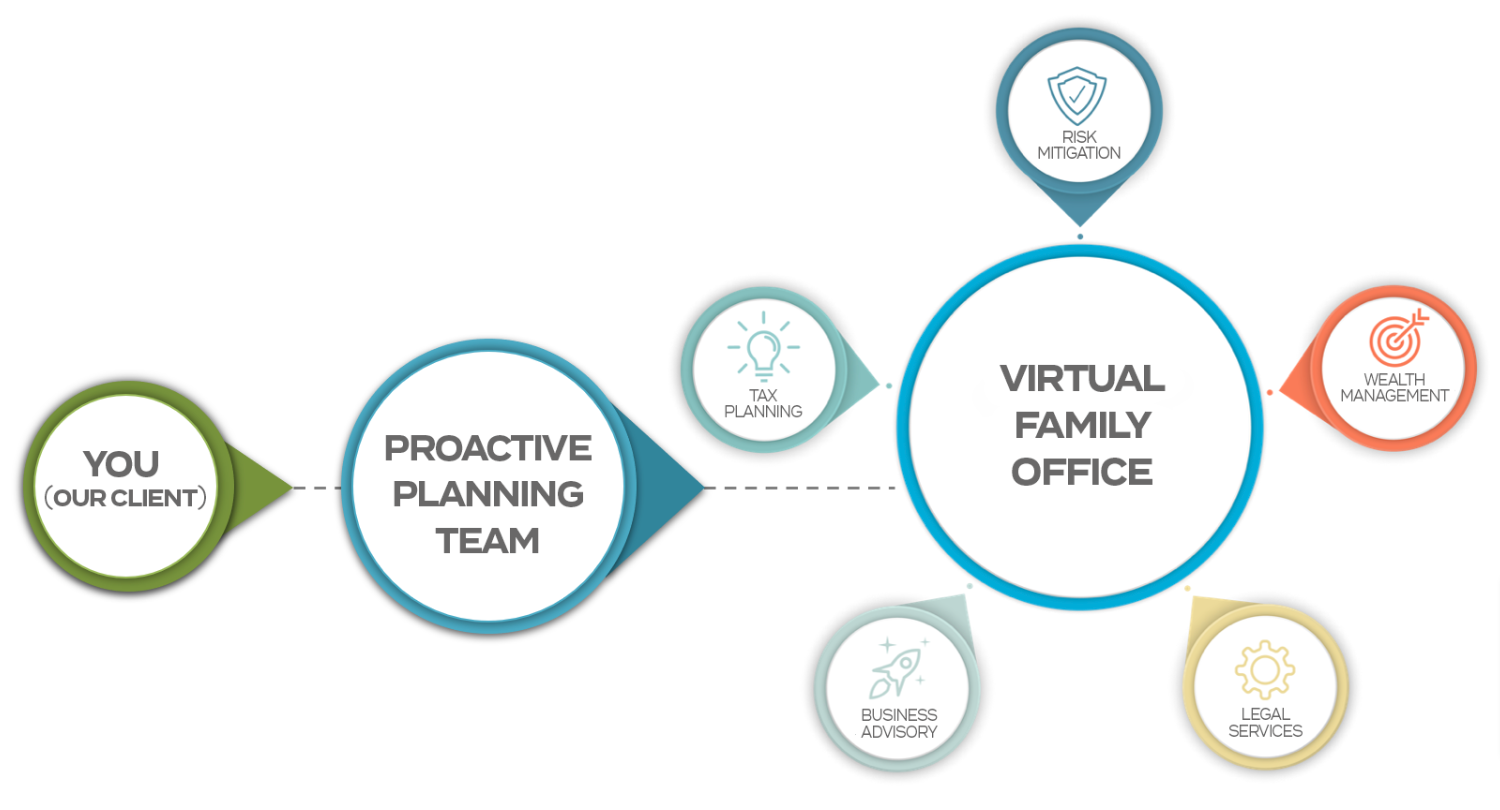Dale Hammernik’s 4 Steps to Business Networking Done RIGHT
Before I get to the meat of my article today, I did want to encourage you, as a business owner, to take a good, hard look at your revenue for the year so far, and consider a few tax possibilities before it’s too late.
1) Project your income for the year and estimate your basic tax bill.
2) Defer income if possible.
Always a good strategy, unless you’re due extra deductions and credits this year.
3) Accelerate deductible expenses.
4) Consider a 179 Deduction
(taking an immediate deduction for CapEx instead of depreciating it). Extender bills in Congress could
increase the limit for this from $25K to $500K. Stay tuned.
5) Consider opening retirement accounts.
Those five above are some “quick and dirty” tactics that every business owner should apply before year-end. If you want to get more granular (and in my opinion, you should), let’s get on the horn: (414) 545-1890
Now … I’ve been to my fair share of conferences, seminars, BNI groups, etc. etc. ad infinitum. And I’ve seen “all types” in those settings. You’ve probably met a few of them yourself in your own dealings…
First, there’s the Business Card Bandit — slinging out their contact details like a carnival barker, and always glad to tell you about what they do. Then, of course, there’s the Network Marketing Mavens — eager to have you discover their fantastic business opportunity. The “I’m-Here-Because-I’m-Here-Every-Week” Banker is always a reliable staple. Oh, and let’s not forget the radio salespeople!
Anyway, I’m sure you could add your own little list. But the subject of my post this week is about doing these groups RIGHT.
And, if you’re smart, you’ll also see that this post is not just about networking groups … but that there are hidden marketing gems in it for online and offline marketing as well.
Dale Hammernik’s 4 Steps to
Business Networking Done RIGHT
“For our own success to be real, it must contribute to the success of others.” – Eleanor Roosevelt
If you want to succeed in your business, then meeting people who’ve already succeeded before you is going to be a huge help. In fact, this could be the sole difference between success and failure. But how do you network locally and at seminars? Learn from my mistakes… and from my many years of seeing these groups work. Because this “mini crash course” I’ve put together will help you build relationships that’ll help boost your network AND your business.
And, of course, these tips hold true in online networking, as well.
1)
Make Friends First
In my experience, this business axiom holds very true: “All things being equal, people prefer to do business with people they like. All things not being equal, people still prefer to do business with people they like.”
If you want someone to share with you their success techniques for building their business, then the first step is to build a friendship with them. Get to know them as human beings and allow them to get to know you. Show a little vulnerability, as well as curiosity and interest towards them.
Once you have a bit of a relationship, THEN talk business.
2)
Give First, Before You Take
Perhaps you’ve discovered a marketing or management technique that’s been working really well for you — so don’t horde it for yourself. There has to be some “give” as well as “take” in any kind of business relationship. Share your knowledge and your insights freely, and others will do the same.
3)
Take The Next Step: Join a Mastermind Group
Meeting with other like-minded people on a regular basis can really help drive you forward.
There are two important things that happen when you’re around other people like yourself: First of all, you get to share ideas, techniques and stories that’ll help you figure out more ways to be successful.
The other thing that happens is that you start to build off of each other’s momentum. If one person is making more money than the others, everyone else will start making more money. Everyone will start taking more action. The energy begets more energy.
If there isn’t a mastermind group near you, then start your own group. It’s not that hard to find like-minded people near you. Get these people together and ask them to bring people they know. Soon, you’ll have a great group of like-minded individuals.
4)
Find a Mentor
If you’re bringing in $20,000 per month to your business, and want to be doing $50,000 a month, then find someone who’s making $100,000 a month.
This relationship can be a paid relationship, a friendship or a mastermind group relationship. Whatever you need to do, just make sure you have someone in your life who’s where you want to be financially. This will have a magnetic effect on your finances. You’ll slowly but surely start making more money.
The bottom line is: WHO you spend time with has a great deal of influence on your success. So make sure you’re networking properly — that you’re spending your time with the right people.
Feel very free forward this article to a Waukesha County business associate or client you know who could benefit from our assistance — or simply send them our way? While these particular articles usually relate to business strategy, as you know, we specialize in tax preparation and planning for Waukesha County families and business owners. And we always make room for referrals from trusted sources like you.
Warmly (and until next week),
Dale Hammernik
(414) 545-1890
Hammernik & Associates
The post Dale Hammernik’s 4 Steps to Business Networking Done RIGHT appeared first on Talking Tax to Milwaukee.
See More Blog Posts







